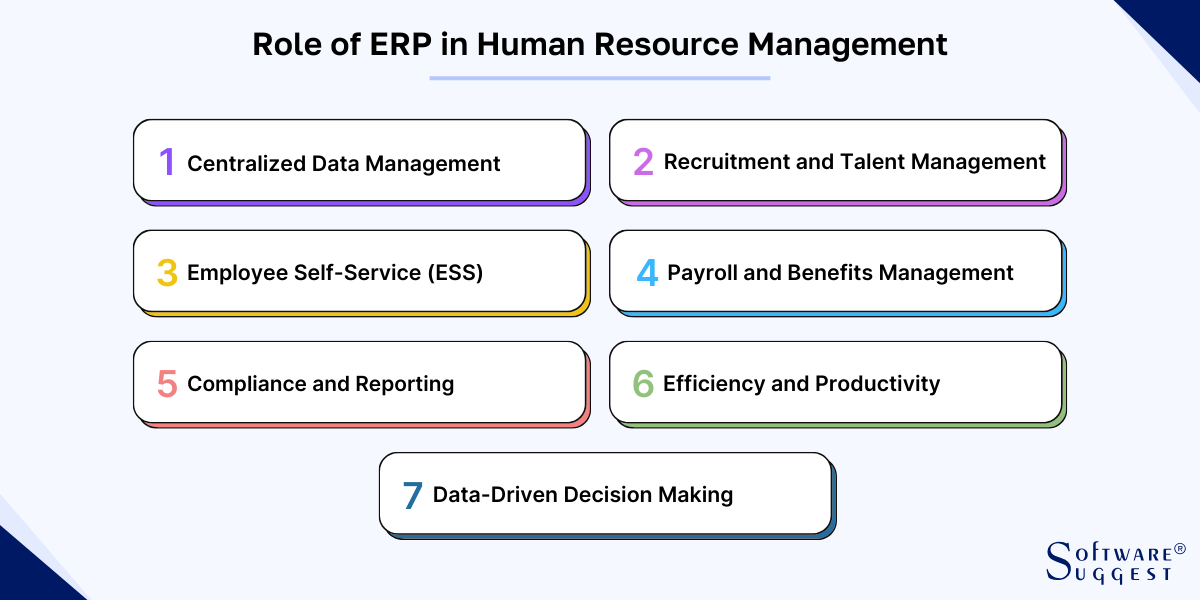Enterprise Resource Planning (ERP) systems are powerful tools designed to integrate various business functions into a cohesive system. While ERP systems are often associated with financial management, supply chain logistics, and production, their impact on Human Resource Management (HRM) is equally significant. By streamlining HR processes and providing valuable insights, ERP systems can transform the way organizations manage their human capital.
1. Streamlining HR Processes
One of the primary benefits of ERP systems in HRM is the automation of routine tasks. Traditional HR departments often deal with a high volume of administrative tasks such as employee record management, payroll processing, and benefits administration. ERP systems can automate these processes, reducing the administrative burden on HR staff and minimizing errors. This automation not only speeds up processes but also allows HR professionals to focus on more strategic initiatives.
2. Improved Data Management and Accuracy
ERP systems provide a centralized database for all employee-related information, ensuring that data is accurate and up-to-date. This centralized approach reduces the risk of data duplication and inconsistencies that can arise from using multiple, disconnected systems. By having a single source of truth, HR departments can make better-informed decisions and maintain accurate records for compliance and reporting purposes.
3. Enhanced Recruitment and Onboarding
ERP systems can significantly enhance the recruitment and onboarding processes. With integrated HR modules, organizations can streamline job postings, track applicants, and manage the hiring process more efficiently. Automated workflows can guide new hires through the onboarding process, ensuring that all necessary documentation is completed and that they are properly integrated into the organization. This streamlined approach can improve the candidate experience and reduce the time-to-hire.
4. Advanced Analytics and Reporting
ERP systems provide powerful analytics and reporting capabilities that are invaluable for HR departments. By analyzing data from various HR processes, organizations can gain insights into employee performance, turnover rates, and other key metrics. This data-driven approach allows HR professionals to identify trends, forecast future needs, and make strategic decisions based on real-time information. Advanced reporting features also simplify compliance with labor laws and regulations.
5. Improved Employee Self-Service
Modern ERP systems often include employee self-service portals, which empower employees to manage their own information. Through these portals, employees can update personal details, view pay stubs, request time off, and access other HR services. This self-service capability reduces the administrative burden on HR staff and improves employee satisfaction by providing a more convenient and transparent way to manage HR-related tasks.
6. Enhanced Performance Management
Performance management is another area where ERP systems can have a significant impact. ERP systems can facilitate the creation and tracking of performance goals, conduct performance appraisals, and manage employee development plans. By integrating performance management with other HR functions, such as compensation and training, organizations can ensure that performance evaluations are aligned with overall business objectives and that employee development is effectively supported.
7. Better Compliance and Risk Management
Compliance with labor laws and regulations is a critical aspect of HR management. ERP systems can help organizations stay compliant by providing tools for tracking and reporting on various compliance requirements. Automated alerts and notifications can help HR departments stay informed about upcoming deadlines and regulatory changes, reducing the risk of non-compliance and associated penalties.
Conclusion
The integration of ERP systems into Human Resource Management offers numerous benefits, from streamlining administrative processes to providing valuable insights for strategic decision-making. By leveraging the capabilities of ERP systems, organizations can enhance their HR functions, improve data accuracy, and better manage their human capital. As businesses continue to evolve, the role of ERP systems in HRM will become increasingly important in driving efficiency and supporting overall organizational success.
